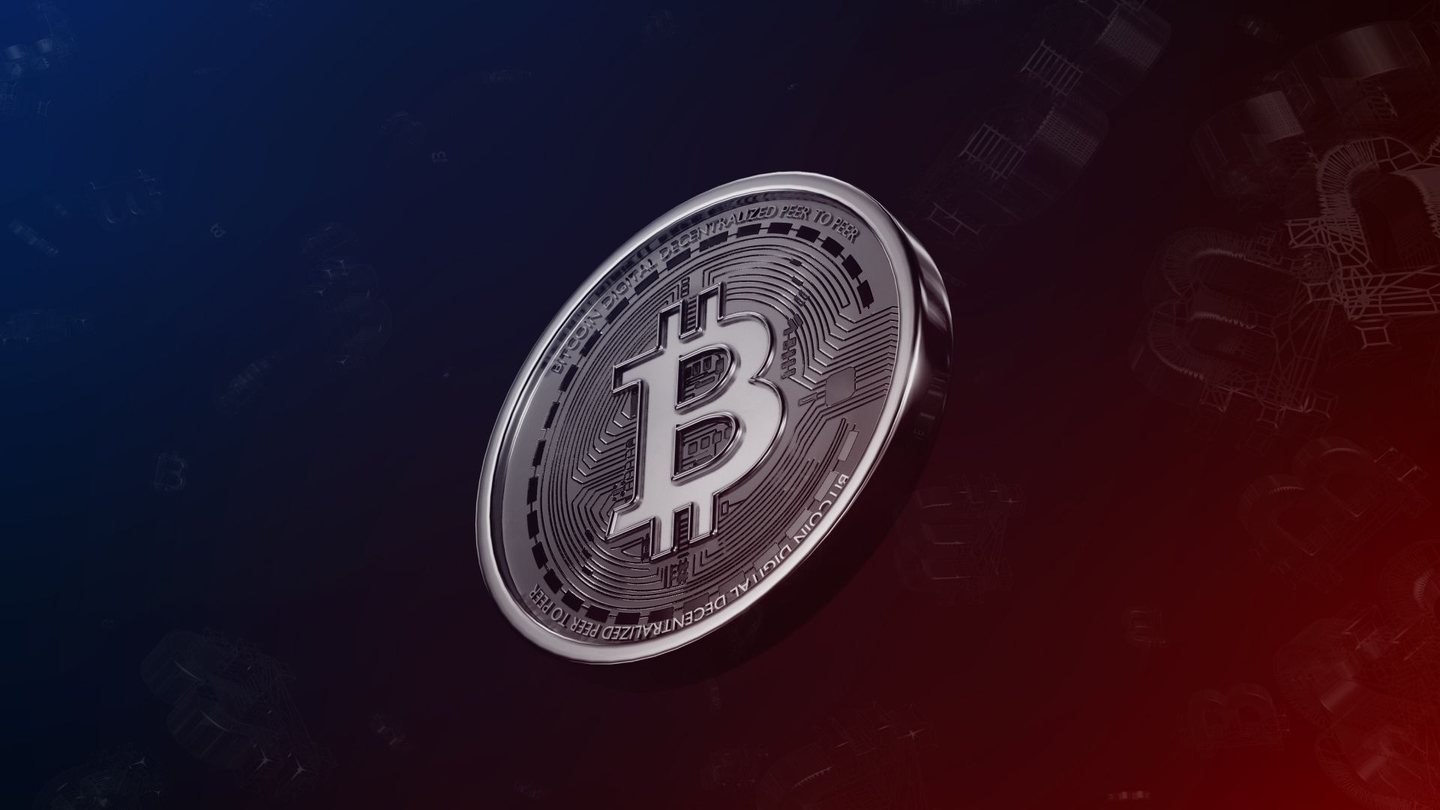Buying Bitcoin can seem risky at first. There’s a lot of technical terms (hashes, public and private keys, Proof-of-Work, etc.), making it harder for a beginner to start. Actually, you don’t need to know the specifics of Bitcoin tech to make your first crypto purchase. In this article, we’ll tell you how to buy Bitcoins with cash in five simple steps.
Key insights
- The value of Bitcoin is its safe and decentralized value storage. It’s compared to digital gold - the utility doesn’t rely on a centralized bank and government. Bitcoin resists inflation and behaves independently of Forex market trends.
- Bitcoin is protected by two encryption algorithms, which makes it nearly impossible to hack. However, the infrastructure used by crypto investors might have weaker links and serve as an entry point for a cybercriminal.
- Investment only requires setting up a wallet and registering on a crypto exchange.However, if you want to be sure of its security, we recommend installing anti-virus and network monitoring tools.
How to buy Bitcoins for cash?
Most crypto exchanges, as financial operations, are subject to a Know Your Customer conditions- KYC is a policy that requires companies to collect personal information and proof of identity. Knowing customers protects crypto exchanges from malicious actions and increases users’ accountability.
🧑💻Required documents
To get Bitcoin with cash, you need to have a bank account, debit card, or a credit card. You also need to install a digital wallet that will store purchased currency.
To safely trade cryptocurrency for cash, you need to protect your private and public keys. If someone gains access to both, that person can conduct your transactions. Before you start purchasing crypto, set up the security settings on your mobile wallet and crypto exchange. Typically, this involves two-factor authentication - an authorization process that consists of two independent verification steps.
👤To get Bitcoin with cash, you need to have a bank account, debit card, or a credit card. You also need to install a digital wallet that will store purchased currency.
🧑💻Who can view my transaction history?
To get Bitcoin with cash, you need to have a bank account, debit card, or a credit card. You will also need a history of blockchain transactions which are publicly available and immutable. However, only your hash (an encrypted string) and the transaction amount will be published in the database. Your personal information (name, bank account, etc) remain private. Bitcoin transactions are easier to track than cash. If someone knows your public key, they can track your full transaction history.
Step 1: Creating an account on a cryptocurrency exchange
Singing up to a crypto platform will allow you to purchase Bitcoin for cash, exchange it for other cryptocurrencies or fiat, or make a withdrawal. The best practice is to use the exchange service that can be connected to your wallet for higher safety. You should own your coins - it’s not a given on all exchange platforms. Some services sign a contract that allows betting in favor or against the price, so you don’t own the coin itself.
🧑💻Types of crypto exchanges
Several factors can classify cryptocurrency exchanges. Is the service anonymous or does it operate under KYC regulations? How many trading pairs does it enable? These and other factors come to play in your investment decisions.
To safely trade cryptocurrency for cash, you need to protect your private and public keys. If someone gains access to both, that person can conduct your transactions. Before you start purchasing crypto, set up the security settings on your mobile wallet and crypto exchange. Typically, this involves two-factor authentication – an authorization process that consists of two independent verification steps.
Decentralized crypto exchanges
Decentralized exchanges don’t require personal documents for identity confirmation. Most of them are fully anonymous. On the one hand, it’s safe - you don’t depend on the centralized team, smart contracts govern all transactions. On the other hand, if something goes wrong, no one can reverse the process. This is why we recommend using decentralized exchanges only if you have a lot of experiences in crypto investments.
Advantages
- Anonymity
- Independency from governing entities
- A possibility to trade for unbanked populations or those with a poorly organized banking system
Disadvantages
- No one takes responsibility for the transaction
- The team can’t fix transaction issues
- There are very few decentralized crypto exchanges and most of them are still being tested
Centralized crypto exchanges
Most crypto exchanges are centralized. They are managed by an official team and use KYC to verify customers. The team also can’t influence the transactions, but the company has more power over solving technical issues.
To choose a crypto exchange, consider the following factors:
- Fees. All exchanges offer different fees that may also vary depending on the type of transaction. Compare offers and choose what works for you.
- Location. Some exchanges don’t work in the US, others - in the UK, while some don’t support European users. Before signing up, check if the platform is compliant with your local regulations.
- Security. Take a look at the company’s history of cyberattacks. Find information about their security practices and guarantees.
- Support. Research user reviews to see how they evaluate the quality of customer support. If you face issues with your transactions, you want CS to step in immediately.
Step 2: Connecting Your Profile To Your Bank
To buy Bitcoin with cash, you firstly need to make a deposit. So, you need to link a bank account to your wallet and deposit the money in your chosen currency. The exchange will gather the personal information and financial data from the bank and determine your trustworthiness.
Bank confirmation checklist
- Make sure that your bank allows deposits on your exchange
- Prepare personal documents for KYC
- Wait from several hours to 1-2 business days for your request’s approval
Types of fees.
- Deposit fees. Most exchanges offer lower fees for bank accounts (around 1-2%) and a higher one for debit and credit cards (3-4%). Of course, it depends on the service - be sure to check the fee policy of your exchange.
- Transaction fees. When you will carry out an order for Bitcoin, the exchange service will take a separate fee per transaction. Comission can be flat or a percentage of your trade. The more significant is the transaction, the higher is the fee. For detailed information, check out the fee info on your exchange.
- Where to start? You can start your crypto trading journey on NAGAX, an EU-licensed crypto exchange provider with low deposit and transaction fees. The deposit request is processed within hours - which means, you’ll be able to buy Bitcoin today.
Step 3: Place an Order
After you’ve connected your bank account and made a deposit, you can make your Bitcoin purchase. Most cryptocurrency exchanges now are as complex as other stock trading platforms. They offer analytical features, transparent statistics, insights into the market. You don’t need to conduct independent research - the platform will usually supply you with all the necessary information.
If you are satisfied with the dynamics of Bitcoin value growth, you can make a purchase directly. Specify an amount that you’d like to invest. Ensure that you specified a correct public address - otherwise, the funds will be sent to the wrong receiver.
Types of Bitcoin investments
As crypto exchanges became increasingly more powerful, they enabled multiple ways of Bitcoin and altcoins’ investments. Here’s a brief review of settings that will help you secure your trades.
- Market and limit orders. You can set up your transaction to be executed as quickly as possible to synchronize the trade with the fluctuations on the market. Limits mark the thresholds for maximal losses and minimal gains. Once you reach either limit, you close the trade.
- Setting up recurring investments. Some exchanges allow you to set regular Bitcoin purchases (every week, month, or quarter).
- Copy trading. Social trading platforms allow users to copy traders of other crypto investors. If you aren’t an experienced Bitcoin investor, you can use the expertise of others to make informed decisions.
To place a Bitcoin order on NAGA, simply go to the Exchange tab, pick a trading pair and click on Buy BTC. Set up loss and win limits, track live price, and view the trade history.

Step 4: Store Bictoin safely.
Once you bought BTC, we recommend moving the cryptocurrency away from the trading exchange - to your wallet. Many platforms allow connecting wallet APIs so that you can transfer your Bitcoin to a safe wallet automatically.
Types of Bitcoin wallets
- Online wallets (hot wallets).
Online wallets are internet-connected services used on PCs, mobile devices, tablets. You can easily synchronize them with an exchange platform. You can access them anytime and anywhere and make fast transactions. However, their security is vulnerable: if your log in data is compromised, a hacker could end up gaining access to your private and public keys.
Best practices for using an online wallet
❗️Don’t mention online how much Bitcoin you hold and don’t share screenshots of your wallet
- Protect your devices with powerful anti-virus services
- Withhold from pirating files, downloading suspicious software, and clicking on unknown links
- Enable two-factor authentication right away
- Use wired connection as much as possible; if you are using Wi-Fi, route your traffic through VPN.
Online wallets can be used for small amounts of crypto. If you are constantly exchanging crypto, you can have a “working” amount stored online. In that case, you can use a custodial wallet developed by the exchange company. However, make sure that the service keeps your keys safely. Ideally, the crypto exchange should have no history of security problems.
Cold wallets
Cold wallets, or hardware wallets, are not connected to the Internet and are less likely to be hacked. These devices store the private key inside the hardware system and can’t be accessed from the outside. Users can view and manage their funds from a software client.
Paper wallets
The safest way to store your crypto is in paper wallets. You can generate it on paper wallet provider sites. Your public and private keys will be printed out on paper. You can transact Bitcoin only if you have access to this paper. To protect the information, paper wallet owners laminate the sheet and store it in bank deposits. Obviously, using this method for regular exchanges would be a lot of work - so paper wallets are preferred for long-term storage.
➡️Recommended practices
Get all three types of wallets: online wallets for small amounts and regular trading, hardware wallets for medium amounts, and paper wallets for long-term storage.
Make sure that you don’t mention the amount of Bitcoin held in your wallet. Keep your crypto activities as discreet as possible.
Don’t use unverified third-party providers. Trust licensed companies with positive user reviews.
Adopt best security practices in your computer usage and online network management.
Conclusions
To buy Bitcoin with cash, you need to use a secure exchange and wallet. Additionally, equip your computer with a powerful antivirus and a network monitoring device. Security measures will help you detect unusual activity and eliminate the threat early on.
When choosing a crypto exchange tool and a wallet, prioritize safety, interface, and customer support over fees. If the platform is attacked, you’ll be at risk of much more significant losses - so be careful early on. And, of course, control compliance with local laws and compatibility with your banking provider.


